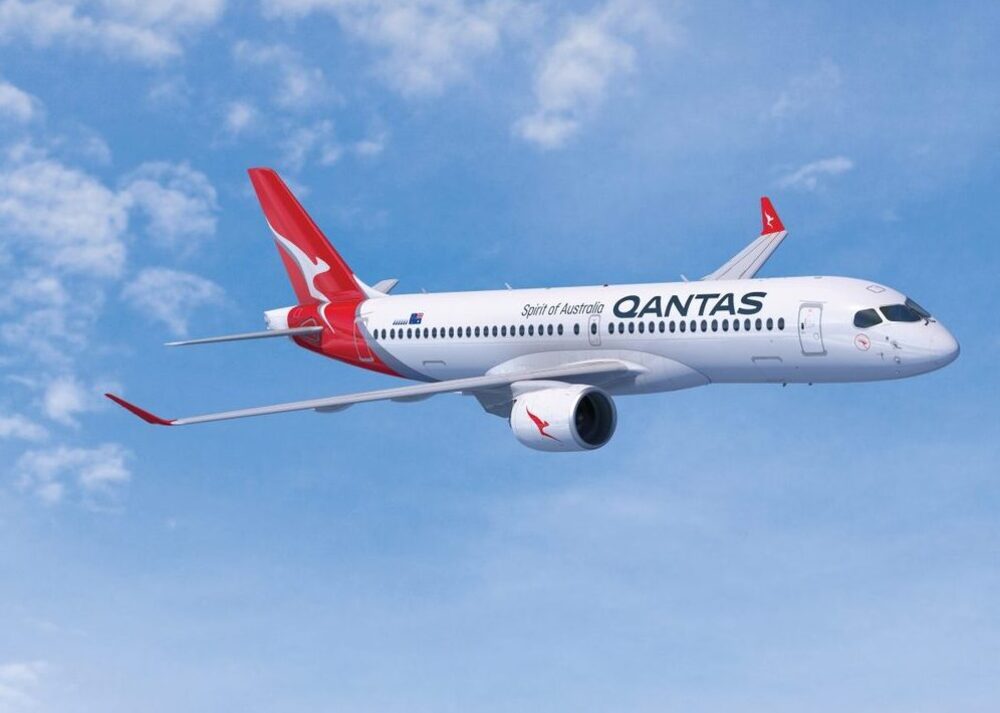In a surprising turn of events, a glitch in Qantas Airways’ booking system has led to a flurry of bargain hunters scoring first-class flights from Australia to the United States at a fraction of their usual cost. This error has sparked a whirlwind of excitement and confusion among travelers, industry insiders, and the airline itself. What was initially perceived as a once-in-a-lifetime opportunity quickly became a major issue for Qantas, as they scramble to address the fallout from the glitch and manage the influx of bookings. This article explores the details of the incident, the impact on travelers, and the broader implications for the airline industry.
The Glitch That Changed Everything
The glitch in Qantas Airways’ booking system occurred over a recent weekend, causing a significant reduction in prices for first-class flights from Australia to major U.S. cities such as Los Angeles, New York, and San Francisco. Travelers who were quick to act were able to secure these high-value seats for as little as $1,000—a dramatic drop from the usual price range of $10,000 to $15,000 for a first-class ticket on this route.
The issue began when a malfunction in Qantas’ pricing algorithm resulted in a pricing error. This glitch was related to an integration issue with the airline’s online booking platform, which inadvertently exposed first-class tickets at an unusually low rate. The error was first detected by a handful of savvy travelers who took advantage of the opportunity to book flights well below the market rate. Word quickly spread through social media and travel forums, leading to a surge in bookings.
Traveler Reactions and Experiences
For many travelers, the glitch was a dream come true. The opportunity to fly first-class, with its luxurious amenities and premium services, was previously out of reach for most budget-conscious flyers. The reduced fares allowed them to experience the epitome of comfort and exclusivity at a fraction of the cost.
One traveler, Emma Thompson from Sydney, described her excitement after booking her flight. “I couldn’t believe my eyes when I saw the price,” she said. “I’ve always dreamed of flying first-class, but it was never in my budget. This glitch was like winning the lottery. I feel so lucky to have been able to take advantage of it.”
Similarly, Mark Reynolds from Melbourne, who had been saving for a special trip to the U.S., was thrilled to secure a first-class ticket for his family. “This glitch made our dream vacation possible,” he explained. “The savings were substantial, and we couldn’t pass up the chance to travel in style. We’re grateful for the opportunity, even if it was the result of a technical error.”
Qantas’ Response and the Fallout
As the magnitude of the glitch became apparent, Qantas Airways moved swiftly to address the issue. The airline’s first step was to halt all bookings for first-class flights on the affected routes and investigate the nature of the error. In a statement, Qantas acknowledged the pricing discrepancy and apologized for any inconvenience caused to travelers.
“Qantas is aware of a technical issue that has resulted in incorrect pricing for certain first-class flights,” the statement read. “We are currently investigating the matter and working to resolve it as quickly as possible. We apologize for any confusion or inconvenience this may have caused our customers.”
However, the airline’s response did not come without complications. Many travelers who had successfully booked flights through the glitch were left in a state of uncertainty. Some reported receiving cancellation notices from Qantas, while others were contacted with revised pricing information. The situation led to frustration among those who had hoped to take advantage of the bargain fares.
“We were devastated when we received the cancellation notice,” said Thompson, who had to scramble to make alternative travel arrangements. “It was such a letdown after being so excited about the trip. I understand that errors happen, but it’s disappointing that we weren’t able to keep our bookings.”
The Broader Implications for the Airline Industry
The Qantas glitch highlights several important issues within the airline industry, particularly regarding pricing and technology. It underscores the reliance on sophisticated algorithms and booking systems that can occasionally fail, leading to unexpected consequences.
1. Impact on Airline Revenue and Brand Image
The financial implications of the glitch for Qantas are significant. The loss of potential revenue from discounted first-class tickets could have a considerable impact on the airline’s bottom line. Additionally, the incident may affect Qantas’ brand image, as customers may question the reliability of the airline’s pricing and booking systems.
Airlines often rely on complex revenue management systems to optimize ticket pricing based on demand, seasonality, and other factors. A glitch or error in these systems can lead to substantial discrepancies in pricing, which can have both financial and reputational consequences.
2. Consumer Trust and Expectations
For consumers, the incident raises questions about trust and transparency in the airline industry. Travelers who experienced the glitch and subsequently had their bookings canceled or revised may feel disillusioned with the airline. This could impact their future travel decisions and their perception of the airline’s commitment to customer satisfaction.
The incident also highlights the growing expectations for transparency and fairness in pricing. As travelers become more aware of pricing errors and discrepancies, they may demand greater accountability from airlines and seek more reliable options for their travel needs.
3. Technological Dependence and Challenges
The reliance on technology and automated systems in the airline industry is a double-edged sword. While these systems offer efficiency and convenience, they also come with inherent risks. The Qantas glitch serves as a reminder of the potential pitfalls of relying heavily on technology for pricing and booking.
Airlines must continually invest in robust systems and regular maintenance to minimize the risk of errors. Additionally, having contingency plans and customer support mechanisms in place can help mitigate the impact of such incidents and maintain customer trust.
Looking Forward
As Qantas navigates the aftermath of the glitch, it faces the challenge of managing customer expectations and restoring its reputation. The airline will need to address the concerns of affected travelers and take steps to prevent similar issues in the future.
For travelers who benefited from the glitch, the experience serves as a reminder of the unpredictable nature of travel and the occasional opportunities that arise from unforeseen circumstances. While some may have had their bookings canceled or revised, others may have been able to enjoy the luxury of first-class travel at an exceptional value.
The Qantas glitch is a reminder of the complexities and challenges faced by the airline industry in the digital age. As airlines continue to innovate and evolve, they must balance technological advancements with a commitment to customer service and transparency. The incident serves as a case study for the industry and highlights the importance of maintaining robust systems and effective communication with travelers.
In the end, the Qantas glitch may be remembered as a peculiar moment in the history of air travel—a reminder that sometimes, even in the world of luxury and precision, things can go awry. For now, travelers will be left with their stories of unexpected bargains and the ongoing question of how airlines will adapt to prevent similar issues in the future.





